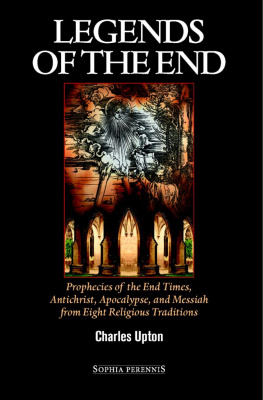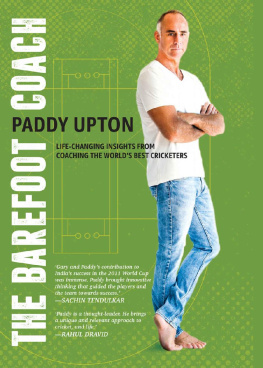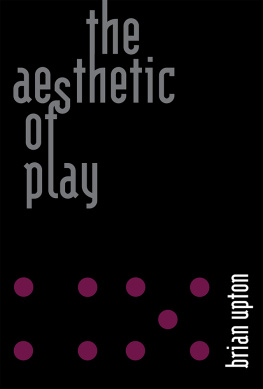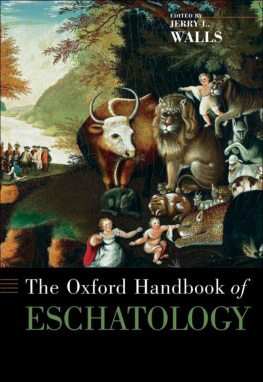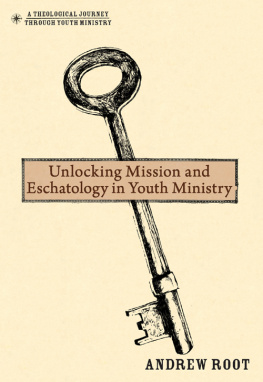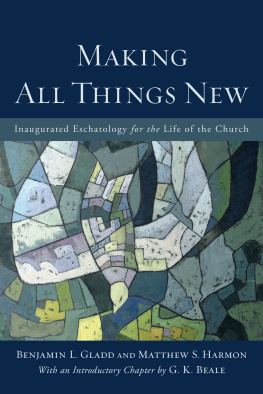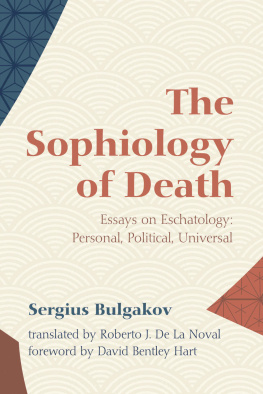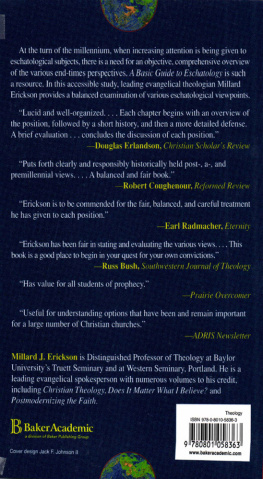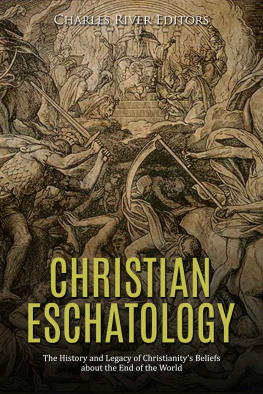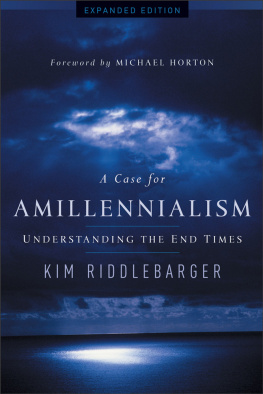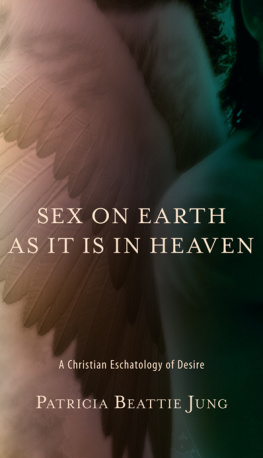LEGEND OF THE END
PROPHECIES OF THE END TIMES,
ANTICHRIST, APOCALYPSE,
AND MESSIAH FROM EIGHT
RELIGIOUS TRADITIONS
BY THE SAME AUTHOR
Cracks in the Great Wall:
The UFO Phenomenon and Traditional Metaphysics
The System of Antichrist: Truth & Falsehood inPostmodernism & The New Age
Hammering Hot Iron:
A Spiritual Critique of Blys Iron John
Doorkeepers of the Heart: Versions of Rabia
The Wars of Love (in press)
First published in the USA
By Sophia Perennis
Series editor: James R. Wetmore
copyright 2004
All rights reserved
Series editor: James R. Wetmore
No part of this book may be reproduced or transmitted, in any form or by any means, without permission
For information, address:
Sophia Perennis, P.O. Box 611
Hillsdale NY 12529
sophiaperennis.com
Printed in the United States of America
Library of Congress Cataloging-in-Publication Data
Upton, Charles, 1948
Legends of the end: prophecies of the end times,
Antichrist, apocalypse, and Messiah from eight religious traditions.
p. cm.
ISBN 1 59731 025 5 (pbk : alk. paper)
ISBN 1 59731 021 2 (cloth : alk. paper)
ISBN 978-1-59731-986-7 (ebook)
1. Eschatology. I. Title
BL 500.U68 2004
202'.3dc22 2004019283
CONTENTS
INTRODUCTION
AT THE BEGINNING of the third millennium, the human race is in the process of forgetting what it means to be human. We dont know who or what we are; we dont know what we are supposed to be doing here, in a cosmos rapidly becoming nothing to us but a screen for the projection of random and increasingly demonic fantasies. Human life is no longer felt to be valuable in the face of eternity simply because it is a creation of God, nor is it as easy as it once was for us to see the human enterprise as worth something because of our collective achievements or the historical momentum which produced them, since without a scale of values rooted in eternity, achievement cannot be measured, and without an eternal goal toward which time is necessarily tending (in the spiritual not the material sense, given that eternity cannot lie at the end of an accelerating linear momentum which is precisely a flight from all that is eternal), history is a road leading nowhere. The name weve given to this state of affairs is postmodernism.
We all, somehow, know this. We feel it in our bones. But we cant encompass it; we cant define the scale of what we face or what weve lost, because we no longer possess the true scale of what we are. We assume the name postmodern, but it would be closer to the truth to say that we are post-humannot in essence, but in effect, since any concept of human nature adequate to the human essence has been discarded as pass.
Humanism is not enough to tell us what it is to be human. Science is even less capable of shouldering this burden, which is why it has mostly given up trying. Only religion, understood in its deepest sense, can ask this question and answer it. And only a thorough understanding of the social and psychic forces that hide the face of the Absolute and Infinite Reality we call God can show us the true scale of what menaces the human form in these latter days, when the present cycle of biological and human time is drawing to a close.If the name God denotes the eternal truth of things, and the name Man the central mirror of this Truth in terrestrial space and time, then the name of those forces of obscurity and denial which are opposed to Man, in their fully revealed and terminal form, is Antichrist.
THE LATTER DAYS
It is common nowadays for many to imagine that the universe, in line with progressive and evolutionary ideas, must somehow be advancing spiritually. If we come to the conclusion that the spiritual evolution of the macrocosm is not possible, we may even wonder what is the worth or profit in material existence. What good is it? What is it for? For fear of becoming Gnostics who deny the value of terrestrial life, we end by denying the eternal significance of this very life.
The problem with the concept that the universe evolves to higher levels of organization, which is basic to the doctrines of Teilhard de Chardin, Rudolf Steiner, and many other New Age teachers (as well as to the attempt within Judaism to apply Lurianic Kabbalahand within Ismailism, the idea of a mass unveiling of spiritual realitiesto historical evolution) is the Second Law of Thermodynamics. This law states that, via entropy, the overall order of matter/energy in the universe is always decreasing, a decrease which is inseparable in principle from the expansion of the universe, starting at the Big Bang. At one point scientists posited the existence of large amounts of dark matter which would allow the universe to contract again, via gravitation, after the momentum of the Big Bang is spent. As of this writing, however, scientific opinion is tending away from this hypothesis. So it would seem that the material universe must continue expanding, and its disorder increasing, forever.
This is strictly in line with traditional metaphysics. This whole world is on fire, said the Buddha. All is perishing, says the Koran, except His Face. Creation, in the traditional view, is a successive stepping down of a higher order of reality to lower ones. God, who in His Essence is totally beyond form, number, matter, energy, spaceand time, mustas Frithjof Schuon never tired of pointing outoverflow into these dimensions of existence because He is Infinite; no barrier exists in His Nature which would prevent the radiation of His superabundant Being.
Traditional eschatologies, by and large, are in line with the Second Law of Thermodynamics. In the place of progressa myth no older than, perhaps, the 17th century, at least in its present formthey posit a spiritual, social and cultural entropy. This is certainly true of Hinduism and classical Greco-Roman mythology, with their idea that a given cycle of manifestation emerges fully formed from the Creator in the form of a Golden Age, to be succeeded by a Silver Age, a Bronze Age, and finally by the present Iron Age, which ends in an eschatological cataclysm, a Purification Day, after which the Golden Age of the next cycle commences. This scheme is more or less accepted, through different mythological languages, by traditional Jews, Christians and Hindus, and even Lakota (Sioux) Indians, and other primal peoples. (The Buddhists, though their doctrine of cycles tends to deny the possibility of an abrupt renewal, also accepts that the present era will end in cataclysm.) Those doctrines within traditional revealed religions which seem to speak of the spiritual progress of the manifest world itself, such as the concept in Lurianic Kabbalah of the tikkun or universal restoration, are either a mis-application of the lore of individual spiritual development to collective history, usually in line with 18th century Enlightenment ideas of progress and their Renaissance precursors; or of the doctrine that God continually creates and holds in existence this manifest world, and may therefore give an individual, religious dispensation or particular nation a special role in renewing the Divine Image for a given human time and place, within the larger context of overall spiritual degeneration; or of the eschatological return of all manifestation to God at the end of time. Whatever is created must leave the House of the Creator in order to come into existence; whatever has emerged into cosmic manifestation has already begun to die.
Believers periodically predict the final (though temporary) triumph of evil in the latter days, the end of the world and the coming of the Messiah. Non-believers routinely scoff when such predictionsseemingly fail to materialize. They will have the opportunity to continue scoffing until the world really does end, after which neither believers nor non-believers will, in worldly terms at least, have either the opportunity or the impulse to say I told you so. At that ultimate moment of truth they will find themselves face-to-face with a Reality so profound, so rigorously demanding, that their opinionsright or wrongalong with all the psychological reasons they had for holding them, will dwindle into insignificance. Only their essential motive for holding to Truth or sinking into error will remain to them, as the sign of their eternal destiny before the face of God.
Next page
